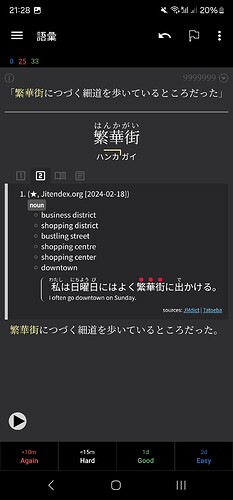Hello. I recently decided to go all in on from english definitions to the monolingual dictionary switch for my anki cards/lookups of words in general considering its much more accurate.
However I’ve noticed something kinda strange and hopefully can explain it properly with it making sense lol.
Basically, whenever I used to use English definitions for my word definitions it felt easy to just put in my head that for example, ‘林檎 = apple’. So whenever I looked at this word I would see the definition as apple- I would review this until it became second nature and it was fairly easy to memorise.
However, when I switched to monolingual definitions I seem to be struggling to know if I’ve actually memorised the word or not. This is because instead of a single word definition/simile to the word, you get a more detailed description/sentence for a single word. And unlike when I used to look at 林檎 (NOT talking about this word specificlly since nouns like this are easy to remember) and think to myself…‘ah, apple!’ (etc) now when I look at a word I added with a monolingual definition, I can’t recall the full sentence as the definition and the meaning is very vague in my mind.
Kinda unsure what to do to fix this problem? Is it as simple as try memorise the exact sentence and repeat it in my head every time I see the word that I added with a monolingual definition?
Hope this makes sense aha


